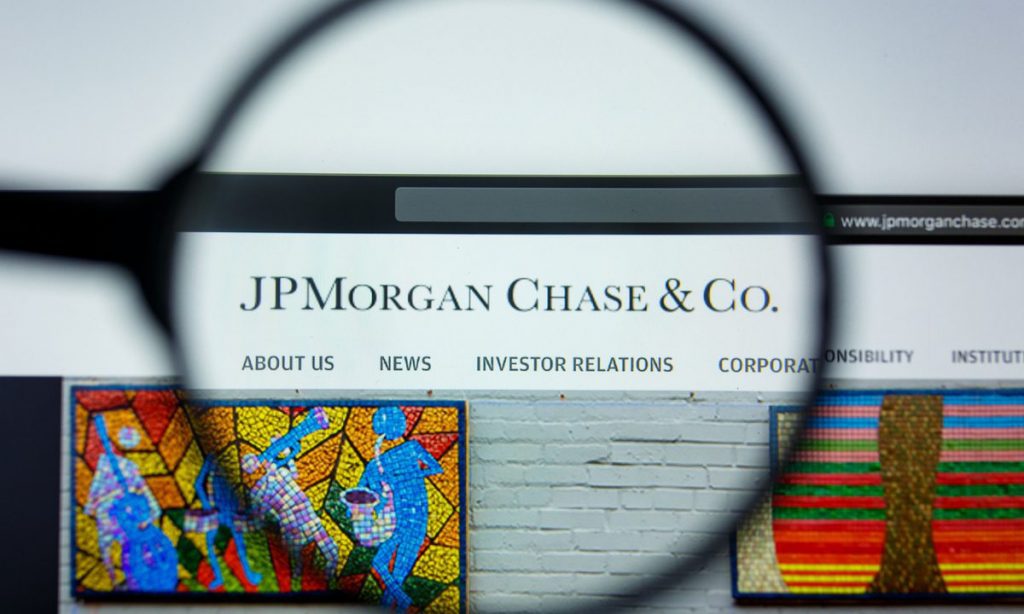“To say that the purpose of a company is to make money is like saying that the purpose of being alive is to breathe,” said Jim Barksdale, who used to be the CEO of Netscape.
It’s a feeling that’s gaining a lot of support around the world, thanks to things like falling trust in corporations, growing pay gaps, pressure to cut emissions, and the unstoppable rise of people’s power on social media.


At its core is the question of why a business exists in the first place. It is a lot easier to say what, where, and how. But companies are shifting their focus from making money to having a single, clearly defined goal that they use as a north star and stick to no matter what.
It’s a huge change in priorities, and CEOs often find it hard to deal with shareholders and boards that want quick results. The so-called “purpose paradox” can help, though. If a company’s only goal is to make money, it won’t make much money.
When you do good, you do well
According to studies conducted by Deloitte, companies with a clear sense of mission experience three times the rate of growth of their counterparts and enjoy significantly higher levels of satisfaction among both employees and clients. Mark Weinberger, the global CEO of EY, went even further in 2020, noting that companies with a social impact purpose have outperformed the S&P 500 by a factor of ten.
But he caveated, “the hard part is figuring out how to make it more than just words in a memo.”
PwC agrees and adds that there is still a ‘say-do gap’ where good intentions aren’t followed through on in practice. According to its 2022 survey of CEO attitudes, surprisingly few top executives included ESG targets in their annual bonus criteria.
Constructed with a specific goal in mind
Which multinational corporations have been shown to have a strong sense of mission? Here are ten that have found success in spite of the fact that their primary motivation is not financial.
1. Airbnb
When a multinational corporation gets rid of its human resources department, it’s probably because it’s led by a dictatorial founder who views diversity as having a wide variety of single malts in the antique globe bar cabinet in his office.
That wasn’t the case, however, when Airbnb disbanded its HR department in 2015 and replaced it with the Employee Experience Group (EEG). Mark Levy, EEG’s CEO, saw this as a significant change because the company’s mission has always been to foster a global sense of community.
Levy, who is now an adviser to multiple companies, says to The CEO Magazine, “The shift from HR to EX was all about co-creation.” Doing things with and for your staff, rather than just to them. It made everyone feel heard and added warmth and friendship to the workplace.
We set out on a mission to make a world where everyone has a place, and that goal served as the inspiration for new recruits and guided their daily efforts.
Lesson:
They are the ever-productive Since Richard Branson’s inception, employees have always come first, and in the case of Airbnb, content hosts are necessary for satisfied guests.
2. Patagonia
An excellent illustration of the purpose paradox is the outdoor adventure company. In fact, Patagonia’s stated goal was to decrease profits by encouraging people not to purchase their products.
With the mission statement “to save our home planet,” the organization “Common Threads” advocated for people to fix their clothes rather than throw them away when they became worn.
“They’ve never strayed from the mission of protecting the planet,” Levy says. Their “careful growth” strategy ensured that they never spent more money than they had, and they ultimately donated the business to charity rather than selling it.
The company’s apparent attempts at self-harm actually boosted sales by 30 percent.
Lesson:
It’s not enough to simply say you’re a good corporate citizen in today’s world. They must understand that openness and longevity are fundamental to your approach.
3. IKEA
The Swedish furniture giant’s stated mission is to “create a better everyday life for the many people” through the production of high-quality, reasonably priced, and practical goods.
IKEA’s mission extends far beyond the sale of cheap beds and meatballs; the company has shown that it cares about the well-being of its employees, and it shows: on Comparably.com, a website where employees can anonymously rate their employers, every single IKEA employee reported feeling proud of and motivated by the company’s values.
That confidence is grounded in the firm’s commitment to sustainability; by 2030, it promises, all of its 9,500 products will be designed to be repaired, reused, and recycled, making it a “circular company.”
Lesson:
People are willing to spend their Sunday morning armed with an Allen key and follow minimalist instructions because IKEA is more than a store; it’s a part of the community.
4. The Cheeky Panda
When Bill Gates famously predicted the effects of a global pandemic in 2014, he didn’t account for one crucial detail: the value of toilet paper would skyrocket, surpassing that of crude oil.
The Cheeky Panda, a company based in the United Kingdom, uses sustainable bamboo that doesn’t need any fertilizers, bleach, or chlorine to make all of its paper-based products, which is ironic considering that the company spent the previous three years pioneering ways to manufacture the tissues while using a lot less oil and a lot fewer trees.
Its website boldly proclaims, “We want to bring sustainability to the mass market in our own cheeky way.” The company has been expanding at a rate greater than any bamboo plant, and its leaders are planning on raising $300 million in an IPO.
Lesson:
Consumers will pay a premium for products that are marketed as being good for the environment.
5. Tesla
Elon Musk didn’t start Tesla to become a billionaire; he started it to accelerate the world’s transition to renewable energy. In the process, he nearly went bankrupt as Tesla hovered one month from insolvency for much of 2017 and 2018.
By investing heavily in research and development of new technologies, including driverless cars that Musk claims will “save millions of lives,” Tesla has single-handedly rewritten the automotive playbook by remaining true to its principles of producing high-quality electric vehicles.
Lesson:
Both Tesla and SpaceX have been so successful because their founders recognized untapped markets and set out to dominate them with dogged determination to be the first and best in their respective fields.
6. The Body Shop
The Body Shop was founded in the United Kingdom in 1976 with a pledge to sell only natural, cruelty-free beauty products. However, the company’s mission has had a somewhat turbulent history. After years as the poster child for ethical practices, the company was accused of greenwashing in a 1994 exposé, and its acquisition by L’Oréal in 2006 sparked controversy over the company’s animal testing in China. By the time it was acquired again a decade later, it had lost its luster.
In 2017, when David Boynton became CEO, he initiated a transformational pivot back to the company’s maverick roots with a new company mission: “to fight for a fairer, more beautiful world.” In four years, online sales doubled, and the company received B Corporation certification.
Lesson:
The pioneering, feminist origins of The Body Shop had become so diluted that the company had lost its raison d’être. No brand can coast solely on its reputation.
7. Starbucks
The mission of this massive American coffee chain is “to inspire and nurture the human spirit, one person, one cup, and one neighborhood at a time,” which has little to do with coffee.
It has little to do with the maximization of profit because it is expensive to meet its goals of lowering carbon emissions, obtaining fair-trade beans, providing access to quality healthcare and education, and bolstering the livelihoods of local farmers.
Even so, it won over the public and sparked the concept of a “third refuge” where people could get their caffeine fixes away from the house and the office.
Lesson:
Starbucks’ revolutionary approach to customer service has proven that a focus on the customer experience is more important than coffee quality.
8. LEGO
The mission of this massive American coffee chain is “to inspire and nurture the human spirit, one person, one cup, and one neighborhood at a time,” which has little to do with coffee.
It has little to do with the maximization of profit because it is expensive to meet its goals of lowering carbon emissions, obtaining fair-trade beans, providing access to quality healthcare and education, and bolstering the livelihoods of local farmers.
Even so, it won over the public and sparked the concept of a “third refuge” where people could get their caffeine fixes away from the house and the office.
Lesson:
Starbucks’ revolutionary approach to customer service has proven that a focus on the customer experience is more important than coffee quality.
9. Auden Group
Payday loans have a bad reputation because they lure desperate people with the promise of quick cash but instead trap them in a never-ending cycle of debt.
They needed a new way to get back on their feet, and British Fintech company Auden was founded ten years ago to provide that. It boldly proclaims, “We know many people don’t have a choice.” Changing that is one of our primary goals.
The company prioritizes its customers’ financial well-being over its own by not making loans to those who can’t repay them.
Lesson:
Auden has carved out a new purpose-led niche, and its rapid expansion is evidence of the value of maintaining a consistent brand identity.
10. Ben & Jerry’s
Ben & Jerry’s is the poster child for putting purpose first and a byword for corporate responsibility because of its efforts to uphold ethical business practices by championing underrepresented groups and challenging systemic inequities. The whole thing, in a bowl of ice cream.
Ben Cohen and Jerry Greenfield, the company’s co-founders, were activists from the very beginning. They went on to become cultural icons representing genuineness, kindness, and delicious frozen desserts.
The brand’s continued activism on issues ranging from farm emissions and LGBTQIA+ rights to the occupation of the Palestinian territories has survived even the sale to Unilever in 2000.
Lesson:
When it comes to public relations expertise, effective brand messaging, and charismatic founders, Ben & Jerry’s has it all. Other ice creams may be tasty, but none compare to this one in terms of making you happy.
Offering up the Yeezy cash
Countless well-known tech companies—among them Facebook, Google, Amazon, Uber, Apple, SpaceX, Netflix, Dell, and others—have made their missions a top priority. Many people floundered at first, but after discovering their “why,” they went on to great success.
Meanwhile, most high-profile business failures can be traced back to unclear leadership. Simply put, they were going in opposite directions.
Adidas recently put its money where its Yeezy sneakers were and severed ties with Kanye West due to the latter’s anti-Semitic tweets. The annual cost to the company is estimated at US$650 million, but it will save the business from the reputational damage that could have cost far more.
Therefore, it’s not just wise men but also wise CEOs who follow a north star. If they succeed, they won’t even have to bring any gold with them; there will be plenty waiting for them.




